Sex Reassignment Surgery (Male to Female) in Hong Kong
Search and Compare the Best Clinics and Doctors at the Lowest Prices for Sex Reassignment Surgery (Male to Female) in Hong Kong

Find the best clinics for Sex Reassignment Surgery (Male to Female) in Hong Kong
No clinics available
Thailand offers the best prices Worldwide
Price: $ 2,473

- Home
- Hong Kong
Compare Before & After Photos of _procedure_photos.phpSex Reassignment Surgery (Male to Female)


Front view


Front view
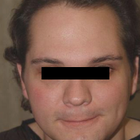

Front view


Front view


Front view
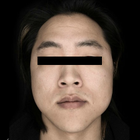

Front view
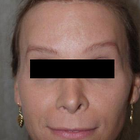
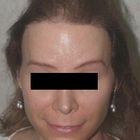
Front view
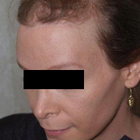
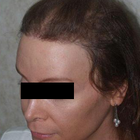
Half-side view
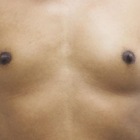

Front view
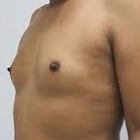

Half-side view
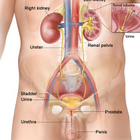
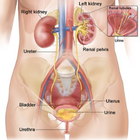
Front view
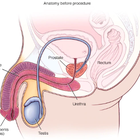
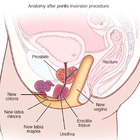
Full-side view
WHY US?
At Medijump, we're making medical easy. You can search, compare, discuss, and book your medical all in one place. We open the door to the best medical providers worldwide, saving you time and energy along the way, and it's all for FREE, no hidden fees, and no price markups guaranteed. So what are you waiting for?

Free

Best Price

Widest Selection

Risk-Free
What you need to know about Sex Reassignment Surgery (Male to Female) in Hong Kong

Also known as Gender Reassignment or Sex Change Surgery, Sex Reassignment Surgery (SRS) involves the surgical procedures required to change a person’s sexual characteristics from one gender to the other. The procedure can be used to transition a person from Male to Female and from Female to Male. Male to Female procedure involves reshaping of male genitals to appear and function as female genitalia (including a vaginoplasty), hair removal therapy, hormone replacement, facial feminization surgery, and Breast Augmentation.
Hormone treatment is started one year prior to surgery and continues after, where estrogen helps to reshape the body’s contours and stimulates the growth of labia majora. At least one therapist will be required to assess a patient’s psychological wellbeing before the go-ahead can be given.
The decision to have a breast augmentation should be an informed one that takes into account the potential risks and side effects. You should also have realistic expectations about the results of breast implant surgery to avoid disappointment. Find out about the procedure, the recovery period and any possible complications - ask your doctor or surgeon if you are unsure about anything.
What is the cost of Sex Reassignment Surgery (Male to Female) in Hong Kong?
One of the most common inquiries about the Sex Reassignment Surgery (Male to Female) pertains to its expense. The financial burden associated with the procedure may significantly impact one's decision to pursue it. Nonetheless, it's not easy to pinpoint the exact cost, given that numerous factors can influence it. In Hong Kong, the total cost of the procedure may fluctuate considerably based on factors like surgeon qualification, the intricacy of the operation, and the span of hospitalization, to name a few.
It's vital to acknowledge that the Sex Reassignment Surgery (Male to Female) is not a one-off event, but entails a succession of treatments and surgeries. Typically, it includes mental health sessions, hormone treatments, and several surgical procedures, all of which add to the general cost. Expenses post-surgery, such as medication, check-up appointments, possible extra surgeries, and supplementary therapies, also require consideration. Furthermore, expenses for travel and lodging in Hong Kong should be taken into account. For a precise cost approximation, reach out directly to the clinic.
What does a Sex Reassignment Surgery (Male to Female) Procedure Involve?
Clinically speaking, sex change operation is known as “Genitoplasty Procedure”. This type of procedure can be performed to transition an individual from female to male and from male to female.
It is very important to understand that before you undergo surgery, you will need to first transition. Gender transition is a lengthy process that requires a lot of patience and resilience. In addition, it will be of great help if you have a strong support system to back you up in times of difficulty. It’s also essential that you have a therapist to not just help you with your emotional wellbeing before and after the transition, you will also need a letter of recommendation from your therapist before your surgery.
Transitioning from male to female will involve penectomy (removal of the penis), orchiectomy (removal of testes), vaginoplasty (creation of a vagina), and feminizing genitoplasty (creation of female genitalia). During the surgery, you will be induced with a general anesthetic.
You must start hormone treatment a year prior to your surgery to help reshape your body contours and stimulate the growth of your labia majora. Hormone treatment will be continued even after your sex-change operation.
There are popular MTF sex reassignment surgery techniques which you can choose from, two of which are: sex reassignment surgery with skin graft technique - the most popular SRS procedure, vaginal depth is up to 13-15cm (5-6 in). Another is sex reassignment surgery with colon graft - suitable for people with less scrotal skin and those who prefer a lubricated vagina and is considered as the most expensive procedure.
There are other procedures that you can undergo to fully transition from male to female. These may include; breast implants, facial feminization surgery (FFS), and another procedure would be to minimize the appearance of your Adam’s apple, etc. All procedures to help one fully transition will vary on the individual’s need and of course, their budget.
Prerequisites to Surgery
- Patients must be at least 20 years old or have consent from parents / legal guardians for those between 18 and 20.
- At least 12 months of successful and continuous real-life experience living as a woman.
- At least 12 months of continuous hormonal therapy.
- Must consult with a psychiatrist in the home country and in the country where the procedure will be performed (this can be arranged in your chosen hospital in Hong Kong).
- Physically fit for surgery.
Popular MTF Sex Reassignment Surgery (SRS) Techniques
1. SRS with Penile Skin Inversion
- Suitable for patients who do not want a vagina for sexual intercourse, particularly popular with elderly trans people. Depth is around 2-4 cm (1-2 in) and penile hair removal is required prior to surgery.
- Surgery: 2.5 hours
- Hospitalization: 4 nights
- Recovery time in Hong Kong: 3-4 weeks
2. SRS with Scrotal Skin Graft
- Scrotal skin is used to create a vaginal depth of up to 13-15 cm (5-6 in), depending on skin quality and quantity (additional depth is possible by using groin skin). This is the most popular SRS procedure.
- Surgery: 4 hours
- Hospitalization: 6 nights
- Recovery time in Hong Kong: 3-4 weeks
3. SRS with Sigmoid Colon by Laparoscopic Technique
- The Sigmoid colon is used to create the vagina, allowing for greater depth than what is possible with SRS with a scrotal skin graft. More suited to those with less scrotal skin or those who prefer to have a lubricated vagina, like that of a biological woman. By far the most expensive technique.
- Surgery: 6 hours
- Hospitalization: 7 nights
- Recovery time in Hong Kong: 3-4 weeks
How Long Should I Stay in Hong Kong for a Sex Reassignment Surgery (Male to Female) Procedure?
A lot of patients prefer having surgery overseas since it is far less expensive and most countries, like Hong Kong, have a very high success rate in terms of plastic surgery and gender reassignment surgery.
Recovery after surgery will be a long and painful process. It will also require several follow up procedures as well as constant monitoring so you will have to stay a little bit longer at the hospital until you are ready to be discharged. Generally, allow for a minimum of 3 weeks stay in Hong Kong after your surgery, this will allow for the removal of stitches and a few weeks of follow up visits with the surgeon.
What's the Recovery Time for Sex Reassignment Surgery (Male to Female) Procedures in Hong Kong?
Smoking before and after the surgery is highly discouraged and avoid smoking for at least two weeks to reduce risks of non-healing.
Most people are able to return to work in about 4-6 weeks after a sex change operation. Furthermore, you can resume strenuous work and exercise after 2 months. It is vital that you strictly follow all medication instructions during your recovery period.
Keep in mind, recuperation incorporates not only physical healing but also emotional rejuvenation. The Sex Reassignment Surgery (Male to Female) implies a noteworthy modification in your way of living and acclimating to an altered body image and social identification requires patience. Mental health guidance proves to be an important element in the healing journey, offering emotional assistance and managing any mental obstacles that come up.
What sort of Aftercare is Required for Sex Reassignment Surgery (Male to Female) Procedures in Hong Kong?
Social support is very important before and after the surgery, especially the support that comes from your family and loved ones. You have to be socially and emotionally stable before you undergo the operation. This is why it is required that you have proper counseling to help you with your emotional wellbeing. You have to prepare yourself mentally, before, during and after transition because it can be quite overwhelming and stressful.
It is also important that you maintain a regular check-up with your local doctor to monitor the progress of your healing and avoid complications.
What's the Success Rate of Sex Reassignment Surgery (Male to Female) Procedures in Hong Kong?
The success rate for a sex change is very high nowadays, given technological advancements and the greater experience of surgeons. Gender reassignment surgery from male to female has a higher success rate than female to male; this is why more male transgender people opt for a sex change.
However, given the nature and complexities of this type of surgery, you also have to be aware of its complications, for example, there is always a possible risk of infection, severe pain, given the intrusive nature of the surgeries and the potential for blood clotting and scarring.
Possible side effects may also include a decreased sexual sensation and ability to orgasm, fistula (opening between rectum and vagina), narrowing of vagina and hair growth in the vagina from the grafted tissue and the partial death of tissue used to create the new vagina.
Are there Alternatives to Sex Reassignment Surgery (Male to Female) Procedures in Hong Kong?
There is no alternative to a sex-change operation for those who want to fully transition their body to match their gender identity. Undergoing gender reassignment surgery will require a lot of time, energy, patience, and of course money. A vast majority of people who experience gender dysphoria never really surgically alter their appearance. Instead, they use creams and hormonal pills to alter their bodily appearance. Estrogens (female hormones) will help develop the breast, widen the hips, help lose facial hair and slightly increase voice pitch.
What Should You Expect Before and After the Procedure
Prior to even undergoing the Sex Reassignment Surgery (Male to Female), those considering this option should be aware that their health care provider will necessitate a thorough evaluation phase. This is implemented to ascertain that the individual is thoroughly prepared, both physically and mentally, for the major changes that the procedure implies. The evaluation generally includes multifaceted assessments of physical and mental health, as well as evaluating certain social circumstances. The objective of these assessments is to gauge the individual's preparedness and appropriateness for the procedure.
In this initial stage, the health care provider implements a cross-disciplinary strategy, typically engaging a collaborative team made up of endocrinologists, psychologists, and surgeons. The aim is the effective provision of required hormone therapy and mental health counseling, alongside addressing any possible health-related issues. This pre-surgery stage also serves to educate and obtain consent, meticulously discussing details such as the implications, possible outcomes, risks, and difficulties related to the Sex Reassignment Surgery (Male to Female). Once approved for surgery, patients should be ready to adhere strictly to all pre-surgery directions to lessen any potential risks and complications during the process.
Post Sex Reassignment Surgery (Male to Female), patients should gear up for a substantial recovery period. This will require dedicated wound maintenance, compliance with prescribed medicines, and following specific physical limitations to assist healing. Depending on the specific nature of the surgery, some patients might also have to adhere to a vaginal dilation plan. This plan necessitates consistent use of dilators to avoid the newly created vagina from becoming narrow during the healing period.
What are Potential Risks of Sex Reassignment Surgery (Male to Female)?
A comprehensive understanding and consideration of prospective hazards and difficulties linked to Sex Reassignment Surgery (Male to Female) is vital before proceeding. As a significant surgical operation, it inherently possesses hazards such as intolerance to anesthesia, surgical infections, hematoma or blood congregating outside the blood vessels, excessive bleeding, or suturing problems. Even with the advancements in modern surgical procedures that help minimize these risks, they cannot be entirely eradicated and, therefore, must be anticipated.
The Sex Reassignment Surgery (Male to Female) encompasses elaborate and multifaceted surgeries like vaginoplasty, which have unique inherent risks. Some of these potential hazards include the possibility of diminished sexual sensitivity, complications in urinary functions, or challenges with the dimensions of the newly formed vagina. Other complications can include issues such as vaginal stenosis, a scenario where the vagina gradually shrinks and lessens over time, or rectovaginal fistula, a rare situation where a connection forms between the rectum and vagina unintentionally. Sometimes, more corrective surgeries might be necessitated due to post-surgical complications.
Popular Procedures to Combine with SRS
- Usually performed in one operation: Orchiectomy to remove the testicles and prevent further production of testosterone, Penectomy to remove the penis and Vaginoplasty to form the female genitalia
- Breast Augmentation to create the breasts, which is usually performed at a later date.
- Facial Feminization Surgery (FFS) and Tracheal Shave to help feminize the facial features and is not necessary for many patients.
- Hair Implants, Hair Removal Therapy, and Continued Hormone Replacement Therapy.
Whilst the information presented here has been accurately sourced and verified by a medical professional for its accuracy, it is still advised to consult with your doctor before pursuing a medical treatment at one of the listed medical providers
No Time?
Tell us what you're looking for and we'll reachout to the top clinics all at once
Enquire Now

Popular Procedures in Hong Kong
Prices Start From $69

Prices Start From $208

Prices Start From $1,945

Prices Start From $1,795

Prices Start From $889

Recommended Medical Centers in Hong Kong for procedures similar to Sex Reassignment Surgery (Male to Female)

- Interpreter services
- Translation service
- Religious facilities
- Medical records transfer
- Medical travel insurance
- Health insurance coordination
- TV in the room
- Safe in the room
- Phone in the room
- Private rooms for patients available

- Interpreter services
- Translation service
- Religious facilities
- Medical records transfer
- Medical travel insurance
- Health insurance coordination
- TV in the room
- Safe in the room
- Phone in the room
- Private rooms for patients available

- Interpreter services
- Translation service
- Religious facilities
- Medical records transfer
- Medical travel insurance
- Health insurance coordination
- TV in the room
- Safe in the room
- Phone in the room
- Private rooms for patients available

- Interpreter services
- Translation service
- Religious facilities
- Medical records transfer
- Medical travel insurance
- Health insurance coordination
- TV in the room
- Safe in the room
- Phone in the room
- Private rooms for patients available
Sex Reassignment Surgery (Male to Female) in and around Hong Kong
About Hong Kong
The former British colony became a special administrative region of China in 1997, when Britain's 99-year lease of the New Territories, north of Hong Kong Island, expired. Hong Kong is governed under the principle of "one country, two systems", under which China has agreed to give the region a high degree of autonomy and to preserve its economic and social systems for 50 years from the date of the handover.
Hong Kong welcomes an ever-increasing number of medical tourists each year, many of which travel for Sex Reassignment Surgery (Male to Female) procedures. Hong Kong is a well-established hub for medical tourism, although it is better known for its quality and cutting-edge procedures than for cost.
Popular Parts of Hong Kong
Hong Kong is a blend of a dynamic cultural landscape with an astonishing skyline, glamorous shopping, as well as one of the world’s top culinary destinations.
- Victoria Peak (The Peak) offers the best view of Hong Kong’s modern skyline. It is the highest point on Hong Kong Island and the most visited spots by tourists. You can ride the tram to the top where you will find the Peak Tower and Peak Galleria. The peak is covered by a large park filled with incredible greenery.
- Big Buddha (Tian Tan Buddha Statue) is located in Lantau Island. It is one of the largest Buddha statues and took 12 years to complete. It is the perfect place for tourists who wish to get away from the hustle and bustle of the city. Surrounded by forest and ocean, the statue gives an incredible view. The best way to reach the Buddha is by riding the Ngong Ping Cable car which will take you on a spectacular ride over the forest.
- Wong Tai Sin Temple is one of the most popular temples in Hong Kong. It was named after the famous monk of yore, Wong Tai Sin. It is said that he has the ability to punish evils, heal the wounded, rescue the dying, and grant whatever is requested. The temple is also known as Sik Sik Yuen and has a traditional Chinese temple style.
- Temple Street Night Market is the best night market for tourists. Starting at 6.00 pm, it is the place to go if you want to taste Hong Kong’s street food. You can also find vendors selling gadgets, trinkets, clothing, household goods, jewelry, and traditional Chinese crafts. The place is brimming with atmosphere and it has served as the backdrop to many movies.
- Hong Kong Disneyland is a wonderful world for any Disney lovers. The park is divided into seven lands: Adventureland, Grizzly Gulch, Main Street, Mystic Point, Fantasy Land, Toy Story Land, and Tomorrowland. Here, you will find various adventures, parades, and musicals. In the evening, you can watch the fireworks over the castle.
- Star Ferry is a beloved icon of the city. It is said that your visit to Hong Kong will never be complete without cruising on the famous ferry. You can see the sparkling landscape of the city while enjoying the refreshing breeze.
Weather and Climate in Hong Kong
Hong Kong’s weather is influenced by the monsoon subtropical climate. The temperature is mostly mild all year round. May to September are the warmest months with an average temperature of 33 °C while mid-December to February are the coldest months with the temperature falling to 10 °C. Spring starts from March and ends in early May and the weather during this season is pleasant with many sunny days, but you can also have foggy, rainy, and stormy days.
The summer in Hong Kong is hot and humid with a perpetual threat of rain showers, thunderstorms, and sometimes even typhoons. Summer lasts for around four months from May to September. With August as the wettest month in the city.
The best time to visit Hong Kong is in the autumn, starting from October to early December when the days are generally sunny and the temperatures range from 22 °C to 28 °C. Winter is the holiday season in the city and the average temperature is around 16 °C to 18 °C but it can drop under 10 °C.
Getting Around in Hong Kong
The main gateway to Hong Kong is the Hong Kong International Airport. The airport is built on reclaimed land on the island of Chek Lap Kok and it serves international destinations to almost every major city in the world, including, Dubai, Amsterdam, Seoul, Canada, Singapore, and Sydney. For affordable travel, budget airlines such as AirAsia, Eastar Jet, and IndiGo are available. There are a wide variety of public transport services to and from the airport. The best options are Airport Express, public buses, and taxis.
To get around Hong Kong, it is best to purchase Tourist Day Tickets which gives you unlimited access to the main MTR and certain Rail lines for HK$65. If you are planning to stay longer in the city, the Octopus Card will be a big help. The card is reusable and can be used for almost every public transportation mode and you can buy the card for HK$150.
One of the fastest and easiest ways to get around the city is by the MTR (Mass Transit Railways) and it is one of the most advanced metro systems on the planet. The MTR operates 11 lines from 06.00 am to 01.00 am. The fare ranges from HK$3.6 to HK$52.6 depending on the distance.
The public bus is a great way to explore Hong Kong, especially the south side of the island and the New Territories. Most buses are double-decker and air-conditioned and it is an affordable way to get around the city and the fares will vary based on the distance traveled. Other public transportation modes such as tram and ferry are also available.
If you need a more flexible way of travel, taxis are easy to find and offer excellent value. There are three types of taxis, the red taxis operate throughout the city except for Lantau Island and the fares start at HK$24. The green taxis only operate in the New Territories and the fares start at HK$20.50. The blue taxis serve Lantau Island and the fares start at HK$19.
Tourist Visas in Hong Kong
Citizens of around 170 countries and territories may visit and stay in Hong Kong without a visa for up to 180 days. Other countries not listed in the visa-free entry such as Albania, Armenia, and Cambodia need to apply and obtain a visa before entering the country. All visitors must have a passport valid for at least one to six months beyond the date of entry to Hong Kong. Visitors can apply for a visa from their nearest Chinese embassy or consulate.
Additional Information
- Local Currency: The official currency is the Hong Kong Dollar. US$1 converts to HK$7.78.
- Money & Payments: Tourists can find ATMs almost everywhere, and most ATMs are linked up to international money systems such as Maestro, Cirrus, and Visa Electron. Credit cards are widely accepted. Tipping is generally not expected and restaurants usually add 10% to 15% service charge to your bill.
- Local Language: Most people in Hong Kong speak Chinese (Cantonese and Mandarin). However, English is also widely spoken since it is one of the government official languages.
- Local Culture and Religion: Many people in Hong Kong either follow Buddhism, Confucianism, or Taoism. Christianity is also one of the major religions in the city. Other religions such as Islam, Sikhism, Hinduism, Judaism, and the Bahá'í Faith are also freely practiced.
- Public Holidays: Hong Kong celebrates major religious holidays such as Lunar New Year, Ching Ming Festival, and Christmas.
Popular Searches
- Plastic Surgery in Thailand
- Dental Implants in Thailand
- Hair Transplant in Thailand
- Breast Augmentation Thailand
- Gastric Sleeve in Thailand
- Gender Reassignment Surgery in Thailand
- Laser Hair Removal in Bangkok
- Botox in Bangkok
- Dermatology in Bangkok
- Breast Augmentation in Bangkok
- Coolsculpting in Bangkok
- Veneers in Turkey
- Hair Transplant in Turkey
- Rhinoplasty in Turkey
- Stem Cell Therapy in Mexico
- Rhinoplasty in Mexico
- Liposuction in Mexico
- Coolsculpting in Tijuana
- Rhinoplasty in Korea
- Scar Removal in Korea
- Gastric Sleeve in Turkey
- Bone Marrow Transplant in India
- Invisalign in Malaysia
- Plastic Surgery in the Dominican Republic
- Tummy Tuck in the Dominican Republic
- Plastic and Cosmetic Surgery in Poland
- Rhinoplasty in Poland
- Hair Implant in Poland
- Dental Implants in Poland
- IVF in Turkey